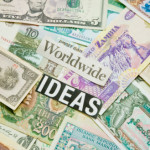 WisdomTree, the New York-based fifth largest exchange-traded fund issuer with about $38 billion in assets under management and 55 different products, has launched its sixth currency-hedged equity ETF.
WisdomTree, the New York-based fifth largest exchange-traded fund issuer with about $38 billion in assets under management and 55 different products, has launched its sixth currency-hedged equity ETF.
The latest product – the WisdomTree Korea Hedged Equity Fund (DXKW), is another attempt by the issuer to replicate the wild success of its $10.6 billion Japan Hedged Equity Fund (DXJ) that has mopped up nearly $9 billion in assets in 2013 alone.
The new fund is the first hedged-currency play on South Korea, Asia’s fourth largest economy, and allows US investors to buy Korean equities while eliminating fluctuations in the exchange rate between the US dollar and the South Korean Won.
DXKW tracks the WisdomTree Korea Hedged Equity Index, a currency-hedged index that has exposure in household names such Samsung Electronics, LG, KT&G, Kia Motors and Hyundai Motors, and that derive less than 80 percent of their revenue from the domestic market while trading on the Korean stock exchange. This allows the index to focus on companies that are geographically diversified and have a significant global revenue base.
In terms of sectors, industrials take the top spot with 25.13 percent weighting, followed by materials (22.10 percent), consumer discretionary (21.07 percent) and information technology (19.03 percent). Top individual holdings include Samsung Electronics (9.84 percent), Samsung SDI (6.15), Hyundai Motor (5.90 percent), Hyundai Mobis (5.64 percent), Kia Motors (5.06 percent) and LG Chem Ltd (5.04 percent).
South Korea is an advanced emerging Asian economy with strong capabilities in technology, automobiles and shipping. The country has a strong export base with nearly 60 percent of GDP coming from foreign trade. DXKW will short forward contracts denominated in Korean won to hedge against currency fluctuations.
The approach of removing the currency variable from the overall investment strategy makes sense since it can boost returns significantly as manifested by DBJP and EWJ. While DBJP – the db X Trackers MSCI Japan Hedged Equity Fund, has gained about 35 percent this year, the non hedged EWJ – the iShares MSCI Japan ETF, has managed to add only a little over 20 percent year to date.
Also due to significant overlap in export products with Japan, Seoul is likely to be most impacted by ‘Abenomics,’ Japan’s ultra-loose monetary policy aimed at propping inflation and boosting exports. Korea may decide to counterbalance the Bank of Japan’s stimulus measures if the yen depreciates considerably in future. The currency-hedged DXKW will thus help US investors to isolate the performance of South Korean equities from the performance of the won.
The fund has an annual expense ratio of 0.58 percent.
Disclosure: No holdings
Contact Ulli